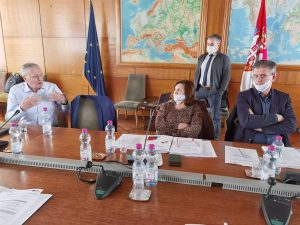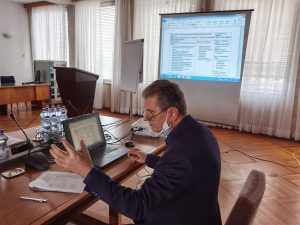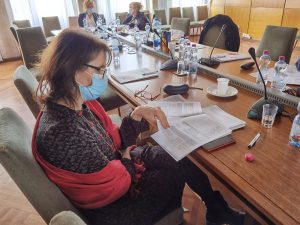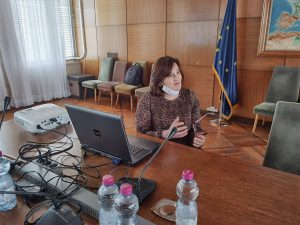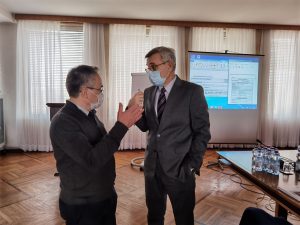PRESENTATION OF THE METHODOLOGY FOR THE DEVELOPMENT OF TRAINING PROGRAMS BASED ON QUALIFICATION STANDARDS
Work on the development of training programs for qualifications selected for piloting the recognition of prior learning process, started in Subotica in early February, continued with the presentation of the draft Methodology for the development of training programs based on qualification standards, at a meeting organized within the project “Development of an integrated system of national qualifications in the Republic of Serbia”. This document was developed at the initiative of the Ministry of Education, Science and Technological Development with the aim of creating a coherent methodology for developing training programs for work in the profession and acquiring qualifications and professional competencies, improving the ability of institutions to expand their educational offer through the development of new adult training programs and create the necessary preconditions for the establishment of an achievement verification system and the RPL system.
The basic approach in the development of training programs that enable the acquisition of professional qualifications and competencies is an approach based on the qualification standard, that is, the transformation of qualification standards into a training program. In other words, program objectives, learning outcomes and contents, and other program elements are extracted from qualification standards and structured into a functional program unit.
The presented Methodology provides answers to questions relevant to the development of vocational training programs such as approaches in program development, the concept and structure of the program, the manner in which the competencies required in the work and the competencies acquired in the training process are harmonized. A special part is dedicated to the stages in the development of training programs and the possibilities for structuring the programs into modules.
After a detailed presentation of the content of the document, two of the eight training programs that have already been developed on the principles of the new Methodology are presented (programs for four qualifications and four programs at the level of occupations from the qualification have been developed). The writers of the program and the experts of the Institute for the Improvement of Education, through the discussion that followed, pointed out some open issues and parts in which it is necessary to more clearly define the steps during the development of the training program.
The approaches proposed in the Methodology will be further tested in practice in the next month, as pilot schools, with the support of Project experts and the Institute for the Improvement of Education, will develop training programs for the remaining five qualifications, out of nine, to be covered by piloting the process of the recognition of prior learning. Based on the results of the piloting, the necessary changes will finally be made to the Methodology, and the document will be available to schools and other organizations interested in accrediting adult training programs.
The Methodology is intended for education and training service providers (schools and other organizations) that have or are interested in acquiring the status of PROAEA for the organization of adult education activities. Given that both schools and other organizations will be able to independently prepare programs of non-formal training based on the qualification standard, a clearly described methodological approach is necessary to ensure the quality of such training, but also the RPL procedure that will be based on learning outcomes arising from the qualification standard.

